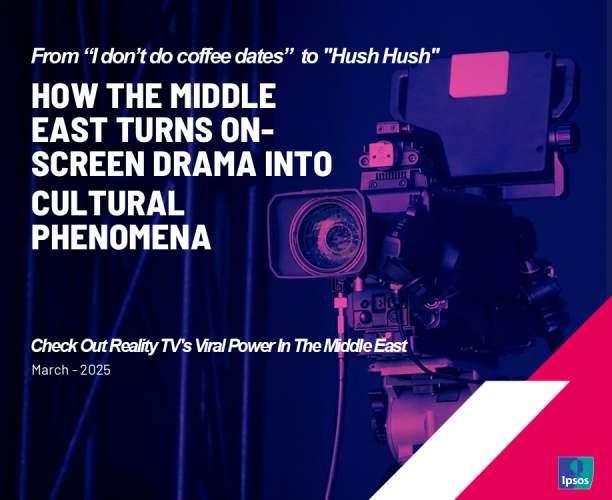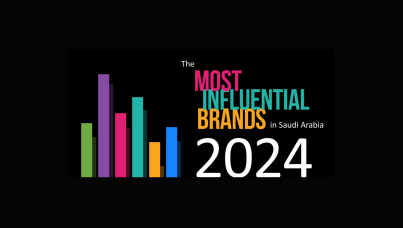

Reality TV's Viral Power: How the Middle East Turns On-Screen Drama into Cultural Phenomena
Reality TV in the Middle East is no longer just a guilty pleasure, it has evolved into a cultural powerhouse. It is producing viral moments that go beyond TV screens and spark conversations online, turning into memes, viral soundbites, and marketing successes. In an era where social media dictates the pace of pop culture, reality TV doesn’t just entertain—it fuels conversations, sparks debates, and shapes the influencer economy.
This isn’t a new sensation. Years ago, Arabs Got Talent and Arab Idol gave us some of the most iconic catchphrases like Amr Adib's "Fula, sham‘a monawwara!" and Najwa Karam’s “Yikhreb baytak, sho habaytak!" or Ahlam’s “Keifi!” These phrases have entered the everyday language of the public. Fast forward to today, and reality TV continues to dominate social media, with shows like Love Is Blind: Habibi and Dubai Bling leading the charge.
Love Is Blind: Habibi – A Catchphrase That Sparked a Movement
Nour’s now iconic line, “I don’t do coffee dates” set social media ablaze. What started as a simple comment became a cultural statement about modern dating, personal boundaries, and self-worth. TikTok and Instagram exploded with reactions, and the phrase earned millions of views, proving the power of reality TV to transcend entertainment and ignite widespread conversations.
From "I Am the Company" to "Hush Hush": A Brand Evolution
Zeina Khoury’s first viral moment, “I am the Company,” reinforced her personal brand, but it was her “Hush Hush” moment that took her influence to all new heights. What started as a casual remark exploded into a viral sensation, dominating memes, reaction videos, and influencer content. She quickly capitalized on the trend, and within a week, her Hush Hush merchandise sold out completely.
The Power of Influencers in Amplifying Viral Trends
These moments don’t go viral on their own—they’re amplified by influencers, who keep these trends alive long after the show ends. With millions of engaged followers; influencers remix, react, and integrate viral moments into their own content, turning a single phrase into a cultural movement.
The Middle East has one of the most digitally engaged audiences in the world. In Saudi Arabia, people spend an average of 3 hours per day on social media, with platform penetration reaching 96%—meaning most users have multiple accounts. This massive digital appetite has fueled the influencer marketing boom, with spending in MENA expected to reach $897 million by 2029.
With their reach and relatability, influencers don’t just spread trends—they shape them, driving online conversations, influencing consumer behavior, and keeping TV moments in the spotlight long after the cameras stop rolling.
Brands Riding the Trend Wave
The key for brands is to engage with viral trends in real-time. After Love Is Blind: Habibi went viral, brands from different sectors—fashion, coffee, and even dating apps—quickly incorporated the “I don’t do coffee dates” phrase into their marketing. Similarly, brands that embraced the “Hush Hush” trend in clothing, accessories, and merchandise capitalized on the excitement surrounding it, turning viral moments into an avenue for growth and engagement.
So, what does this mean? traditional advertising isn’t enough anymore—audiences crave authenticity, and influencer-driven trends now dictate consumer behavior. Marketers in the region are prioritizing influencer marketing more than ever, with nearly half increasing their budgets to stay ahead. Consumers trust what they see trending, making reality TV a powerful engine for engagement, conversation, and brand visibility.
The Future of Reality TV and Marketing
From legendary one-liners to viral moments, reality TV in the Middle East is more than just entertainment—it’s a blueprint for capturing attention. Brands that act fast and engage authentically won’t just follow the conversation—they’ll lead it.
With the region’s social media landscape evolving rapidly, reality TV continues to fuel trends that shape what people consume and talk about. These shows provide an endless stream of cultural touchpoints, and brands that tap into these moments in real-time will stay ahead in a fast-paced, digitally driven world.
So, the next time a reality TV star drops a catchphrase that takes over social media, don’t just watch—join the conversation. After all, in today’s digital world, influence isn’t just observed—it’s created.
For deeper insights into viral trends, the ever-evolving digital landscape, and the power of influencer marketing, let’s connect!



